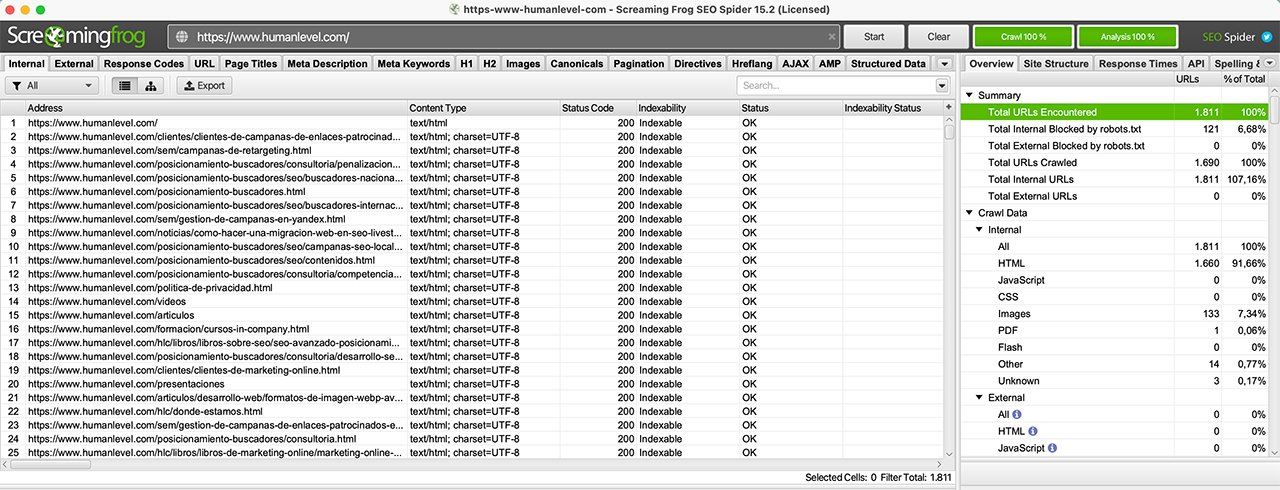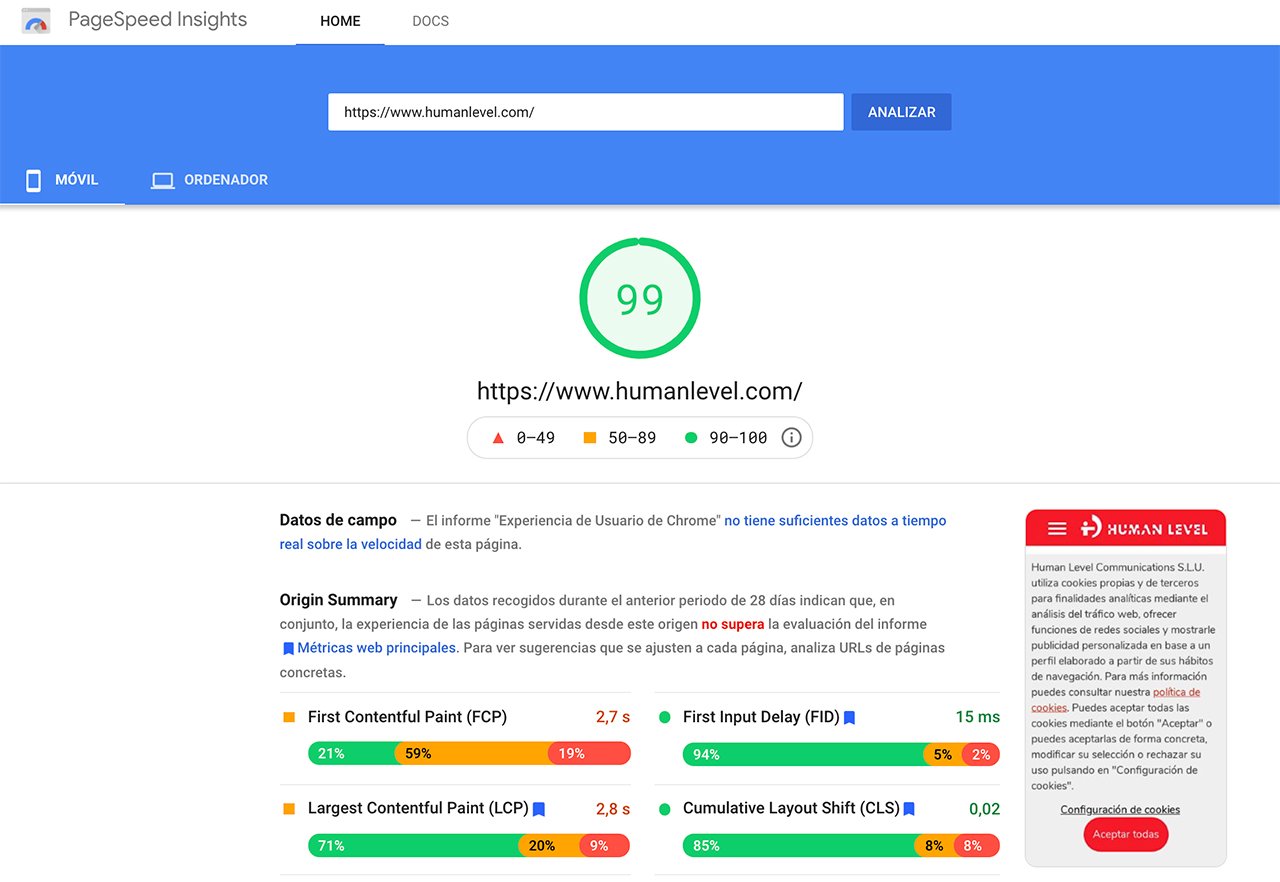Written by Jose Vicente
The technical SEO has as its main objective to optimize the technical areas related to the indexing and search engine positioning of a website. Properly applied, it ensures that search engine robots easily understand all content and, indirectly, it enhances the user experience by making navigation more agile.
The positioning of a website depends on its degree of optimization in three distinct areas: in addition to technical SEO, it is also important to have relevant content and authority. A well-performed technical SEO does not ensure the correct positioning of a site, but it helps the content to be correctly identified. And, on the contrary, it can be a hindrance if the site has problems in this area.
What does technical SEO analyze?
The technical part of an SEO project is divided into a series of SEO audits, among which the following stand out:
- Indexability: technical SEO is in charge of checking that the site is implemented with a technology compatible with search engine robots. Without this, Google and other search engines will not be able to read the content.
- HTML related to SEO: within HTML there are certain tags that search engines use to calculate relevance. Technical SEO checks that the CMS offers the possibility to include them and that writers can customize them on all pages.
- Structured data: tag certain attributes of the content in a format that robots can understand. A technical SEO must identify the types of structured data to implement in each URL as well as define the code to include.
- Mobile configuration: Google crawls sites by emulating a mobile device. It is therefore important that the configuration is compatible with this type of device. The technical SEO will check that Google properly identifies the adaptation to mobile devices and its correct implementation.
- WPO: in addition to correctly identifying the content, it is necessary to serve it quickly. Google recommends respecting certain maximum times to achieve an optimal positioning.
Therefore, a technical SEO audit should verify all these aspects so that the technical SEO assessment is as comprehensive as possible. If not, they could otherwise be detrimental to the positioning of the site by not correctly crawling all of its content.
Tools used in technical SEO
Although an SEO with a technical profile may be able to understand the HTML of a page and be able to recommend options to improve its positioning, it is unfeasible to review all the technical characteristics of a complete site manually. Therefore, in general, consultants use tools such as the following:
- Tools for Chrome or Firefox developers: a basic tool for analyzing the HTML and WPO of a particular URL.
- Screaming Frog: one of the most powerful crawling and data extraction tools used by technical SEOs.
- SaaS tools: such as Ryte, Oncrawl, Sistrix’s Optimizer or SEMRush’s Site Audit, which help speed up the tracking of technical errors.
- Hundreds of browser extensions: Web Developer, Link Redirect Trace, Google Lighthouse, AMP Validator, User-Agent Switcher…
- Custom-implemented SEO tools.
Once the errors have been detected, the consultant must verify that they really exist, the cause that originated them and recommend the most appropriate solution for the technology used. If, due to CMS limitations, it is not possible to implement the optimal solution, you should recommend alternatives that offer a similar solution.
Technical SEO consultant profile
Although consultant profiles with previous technical knowledge such as web programmers or engineers have an easier time understanding technical SEO methodologies, in general most consultants can become good technical SEOs as long as they learn disciplines such as the following:
- Knowing the different web technologies: the first step in any optimization is to know what technology is generating the HTML, whether it is compatible with search engine robots and the solutions applicable in each case.
- Interpret HTML correctly: knowing HTML is vital for most SEO profiles, but even more so if they are in charge of technical supervision. They should have no problem understanding the different tags that search engine robots use to calculate the relevance of content.
- Identify JavaScript code: although it is not essential to know how to program JavaScript, it is important to identify it and know the main problems it can cause in the loading of a site, such as, for example, blockages in rendering.
- Generate JSON-LD scripts correctly: it is also important to have some facility in reading and generating the scripts used to define structured data, as in many sectors rich results rely on these to display more eye-catching SERPs.
- Knowing the complete process of loading and rendering a website: to optimize this process it is important to know all the peculiarities and technologies involved.
- Know the latest WPO techniques: technology is constantly evolving and new techniques to optimize speed are appearing all the time. If a site is to have optimal and up-to-date SEO, it must employ the latest techniques.
- Know the technical characteristics of the most popular CMS: both those used to generate content (blogs, media, etc.) and those used for ecommerce. A good technical SEO must know the peculiarities of CMS such as WordPress, Prestashop or Magento and how to solve their main performance problems.
- The main SEO crawling tools: it is important to know all the possibilities of the main SEO tools dedicated to simulate crawling such as Screaming Frog, Sistrix’s Optimizer or SEMRush’s site audit. These tools facilitate the detection of errors that will ultimately need to be checked by a technical SEO consultant before recommending possible solutions.
In short, this is a necessary job for any website that intends to obtain SEO traffic and must be performed by a consultant specialized in a series of methodologies and tools in continuous evolution.



